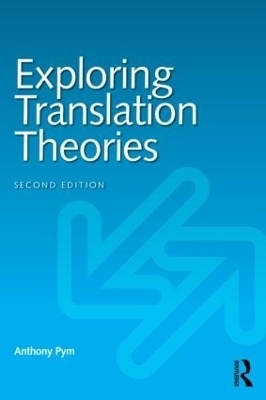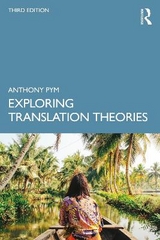
Exploring Translation Theories
Seiten
2014
|
2nd edition
Routledge (Verlag)
978-0-415-83791-0 (ISBN)
Routledge (Verlag)
978-0-415-83791-0 (ISBN)
- Titel erscheint in neuer Auflage
- Artikel merken
Zu diesem Artikel existiert eine Nachauflage
Exploring Translation Theories presents a comprehensive analysis of the core contemporary paradigms of Western translation theory.
The book covers theories of equivalence, purpose, description, uncertainty, localization, and cultural translation. This second edition adds coverage on new translation technologies, volunteer translators, non-lineal logic, mediation, Asian languages, and research on translators’ cognitive processes. Readers are encouraged to explore the various theories and consider their strengths, weaknesses, and implications for translation practice. The book concludes with a survey of the way translation is used as a model in postmodern cultural studies and sociologies, extending its scope beyond traditional Western notions.
Features in each chapter include:
An introduction outlining the main points, key concepts and illustrative examples.
Examples drawn from a range of languages, although knowledge of no language other than English is assumed.
Discussion points and suggested classroom activities.
A chapter summary.
This comprehensive and engaging book is ideal both for self-study and as a textbook for Translation theory courses within Translation Studies, Comparative Literature and Applied Linguistics.
The book covers theories of equivalence, purpose, description, uncertainty, localization, and cultural translation. This second edition adds coverage on new translation technologies, volunteer translators, non-lineal logic, mediation, Asian languages, and research on translators’ cognitive processes. Readers are encouraged to explore the various theories and consider their strengths, weaknesses, and implications for translation practice. The book concludes with a survey of the way translation is used as a model in postmodern cultural studies and sociologies, extending its scope beyond traditional Western notions.
Features in each chapter include:
An introduction outlining the main points, key concepts and illustrative examples.
Examples drawn from a range of languages, although knowledge of no language other than English is assumed.
Discussion points and suggested classroom activities.
A chapter summary.
This comprehensive and engaging book is ideal both for self-study and as a textbook for Translation theory courses within Translation Studies, Comparative Literature and Applied Linguistics.
Anthony Pym is Professor of Translation and Intercultural Studies at the Rovira i Virgili University, Spain. He is also President of the European Society for Translation Studies, a fellow of the Catalan Institution for Research and Advanced Studies, and Visiting Researcher at the Monterey Institute of International Studies. His publications include The Status of the Translation Profession in the European Union (2013) and On Translator Ethics (2012).
1. What is a Translation Theory? 2. Natural Equivalence 3. Directional Equivalence 4. Purposes 5. Descriptions 6. Uncertainty 7. Localization 8. Cultural Translation
| Erscheint lt. Verlag | 16.1.2014 |
|---|---|
| Zusatzinfo | 4 Tables, black and white; 4 Line drawings, black and white; 2 Halftones, black and white |
| Verlagsort | London |
| Sprache | englisch |
| Maße | 156 x 234 mm |
| Gewicht | 280 g |
| Themenwelt | Schulbuch / Wörterbuch ► Wörterbuch / Fremdsprachen |
| Geisteswissenschaften ► Sprach- / Literaturwissenschaft ► Anglistik / Amerikanistik | |
| Geisteswissenschaften ► Sprach- / Literaturwissenschaft ► Literaturwissenschaft | |
| Geisteswissenschaften ► Sprach- / Literaturwissenschaft ► Sprachwissenschaft | |
| ISBN-10 | 0-415-83791-X / 041583791X |
| ISBN-13 | 978-0-415-83791-0 / 9780415837910 |
| Zustand | Neuware |
| Informationen gemäß Produktsicherheitsverordnung (GPSR) | |
| Haben Sie eine Frage zum Produkt? |
Mehr entdecken
aus dem Bereich
aus dem Bereich
Poetik eines sozialen Urteils
Buch | Hardcover (2023)
De Gruyter (Verlag)
59,95 €
Buch | Softcover (2024)
belleville (Verlag)
20,00 €



